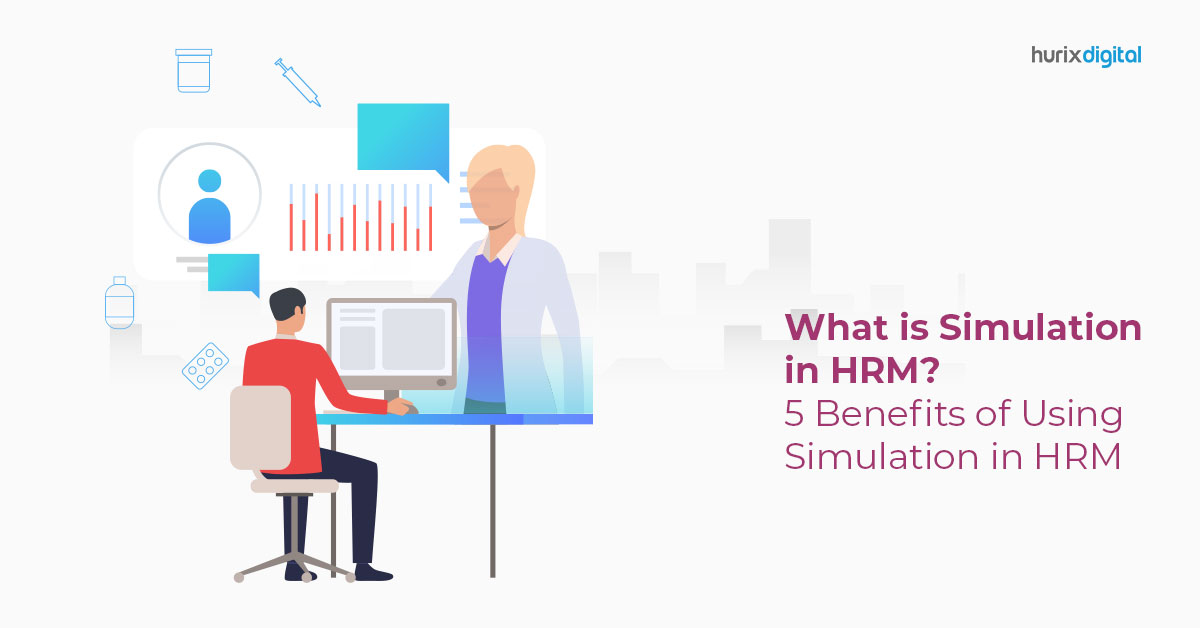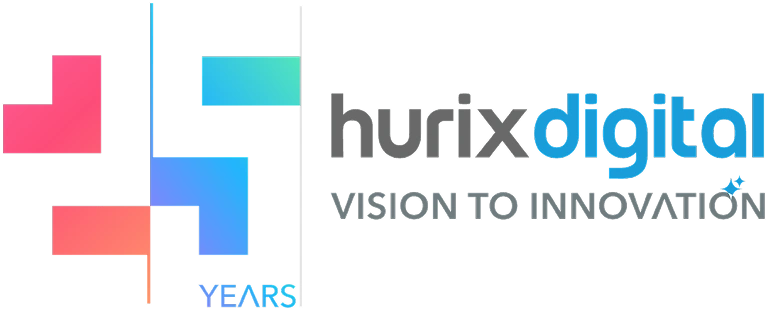
What is Simulation in HRM? 5 Benefits of Using Simulation in HRM
Summarize with:
Human resource management can be very challenging as it requires HR managers to deal with multiple variables like hierarchical structures, legal requirements, cultural diversity, constantly changing learning requirements, and much more. Despite all these challenges, HRM remains an important factor as it promises accurate talent acquisition & retention, organizational growth, employee development, and job satisfaction.
As of November 2021, approximately 4.5 million Americans quit their job due to a lack of job satisfaction combined with the COVID-19 pandemic. HR managers are still struggling to recruit new staff and acquire and train them satisfactorily. This is where simulation in HRM comes into play with its numerous advantages and adaptable characteristics.
Table of Contents:
- What is Simulation?
- What is Simulation Training?
- What is Simulation in HRM?
- What are the Benefits of Using Simulation in HRM?
- In Conclusion
Simulation training methods in HRM can resolve various issues like information overload, inapt learning & training opportunities, lack of employee engagement, and much more. Its precise focus on systemic changes not only brings a strategic change in an employee’s work experience but also allows HR managers to gain relevant insights and make informed hiring decisions.
As a human resource manager, if you are also looking to introduce some systemic changes in your organization through simulation, then you are at the right place. In this concise but informative guide, you will learn about simulation, simulation training examples, and its various benefits.
What is Simulation?
Simulation can simply be understood as computer-based models which imitate human behavior and other real-life processes. Various kinds of simulations are used in equally diverse fields to allow researchers to explore complex situations.
Some of the characteristics of simulations are:
- Replicating and understanding complex systems
- Making predictions
- Testing hypotheses
- Augmenting processes
- Generating insights & outcomes
- Guiding real-world actions & attitudes
What is Simulation Training?
Simulation training is a mode of instruction allowing learners to participate in replicated real-world situations to gain hands-on experience. The immersive experience will enable learners to deal with various tasks and challenges and build a more robust and strategic coping mechanism. Multiple fields and enterprises, like healthcare, military, theatre, manufacturing, aviation, etc., rely on aviation to prepare learners for their professional roles.
For instance, aviation is an obvious and well-known simulation training example. Pilots are expected to regularly practice in flight simulators to enhance their flying skills, decision-making abilities, and expertise to handle emergencies. The simulators combine components like technology, realism, and efficient instructional systems to provide pilots with a comprehensive learning environment.
What is Simulation in Training and Development?
Simulation in training and development is an educational technique that replicates real-world scenarios and situations in a controlled, risk-free environment. It allows learners to practice skills, make decisions, and experience consequences without real-world repercussions. This approach can include computer-based simulations, virtual reality experiences, or physical mock-ups of work environments.
What is Simulation in HRM?
Simulation in HRM is the use of computer-based models and processes that mimic all human resource-related activities like employee recruitment, training & development, workforce planning, employee assessment, and much more. The simulated environments are presented to the employees for learning and training purposes. HR professionals then closely observe the simulated activities to build insights and make smart hiring decisions.
With rapid digitalization and technological advancement, it has become much easier and more accessible for HR managers to organize employee simulation training. Big companies like Google, Facebook, Microsoft, etc., are already experimenting with Metaverse and much more as part of their HRM simulation training and work-from-home regimes. Consequently, the metaverse industry is expected to become a $4.26 billion industry by the end of 2023.
What are the Benefits of Using Simulation in HRM?
Simulation in HRM provides a plethora of benefits to human resource management. The top five benefits of simulation training are mentioned below:
1. Skill Development and Learning
The HR department of an organization is expected to continually train both new and existing employees in various aspects like problem-solving, learning retention, leadership, delivering on time, conflict resolution, etc. Simulation training can create real-life scenarios related to these various aspects, allowing employees to navigate, learn from, and fine-tune their skills.
The simulated training environments keep learning fun and experiential for the employees. HR professionals often face the difficulty of continually developing creative training methods for their employees. Repeated training strategies prove to be monotonous and redundant for the employees, hence decreasing their learning. With simulation training, HR managers can regularly offer something new and exciting to their employees.
2. Risk-Free Environment
Some employees suffer from performance pressure when they are observed through human intervention during HR training and development sessions. Under pressure, they are more prone to make mistakes affecting their assessment accuracy.
With simulated HR training, they can access a more risk-free environment to perform their best and showcase their creativity. This also allows HR professionals to make more informed and accurate evidence-based decisions.
WHITEPAPER:
AI-Powered Learning – Transforming Employee Training Across Industries
3. Teamwork and Collaboration
Among the many factors HR simulation techniques can measure, one very important factor is teamwork, collaboration, and communication. Each simulation can be strategically designed to unite all employees and assess their collaborative working skills.
Over 17% of employees are more satisfied with their jobs when they engage in collaborative work. Therefore, coordinated activities can be reliably used to foster interpersonal skills, a strong belief in teamwork, and respect for colleagues.
4. Data-Driven Decisions and Insights
Simulation in HRM post-completion generates a great amount of valuable data allowing HR managers and professionals to plan their future HR-related activities accordingly. The data collection and analysis also will enable them to cultivate a deeper understanding of the employees, their needs, strengths, and weaknesses.
Lastly, with the right data, they can provide the right stimulus and interventions in future training to attain desirable results.
5. Ethical Decision Making
HR professionals may or may not face conflicts of interest or ethical dilemmas while making HR-related decisions. Simulation training reduces the possibility of ethical dilemmas by providing clear data followed by an in-depth analytical report. The report can be trusted to make accurate decisions regarding an employee’s performance, flexibility, adaptability, and much more.
Lastly, this also allows HR professionals to develop ethical awareness and responsibly manage their duties.
In Conclusion
By effectively leveraging all the benefits mentioned above, an organization and HR department can thrive greatly with simulation training methods in HRM. They can enhance their HR capabilities, improve decision-making, foster a culture of learning and development, and ultimately drive organizational performance and success.
If you are now convinced and looking for a simulation training company, you can reach out to us at HurixDigital. We are one of the best digital solutions platforms offering various services like digital content solutions, digital content transformation, digital engineering, and much more. Some of our trusted clients are FedEx Express, Deloitte, Ikea, and Cambridge University Press.
Summarize with:

Performance, Results, Growth, and Life-Long Learning define my professional life. I am passionate about making workplace learning planful, purposeful, and impactful. I take pride in partnering with clients and bringing them the best in learning design and creating solutions that address business challenges.
 A Space for Thoughtful
A Space for Thoughtful 
